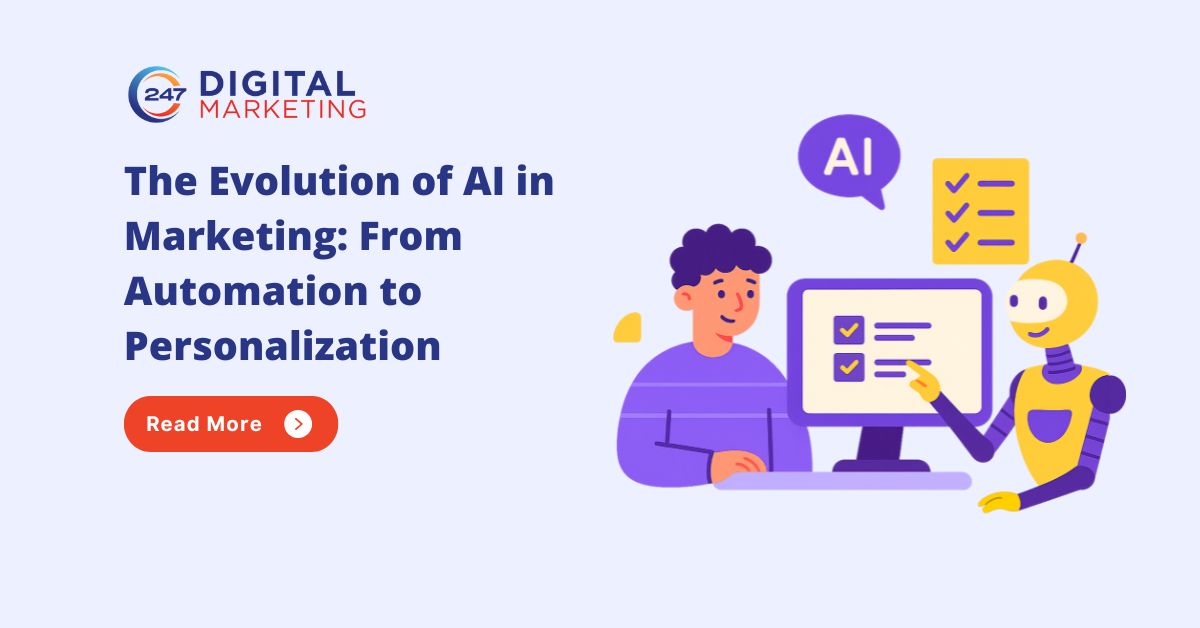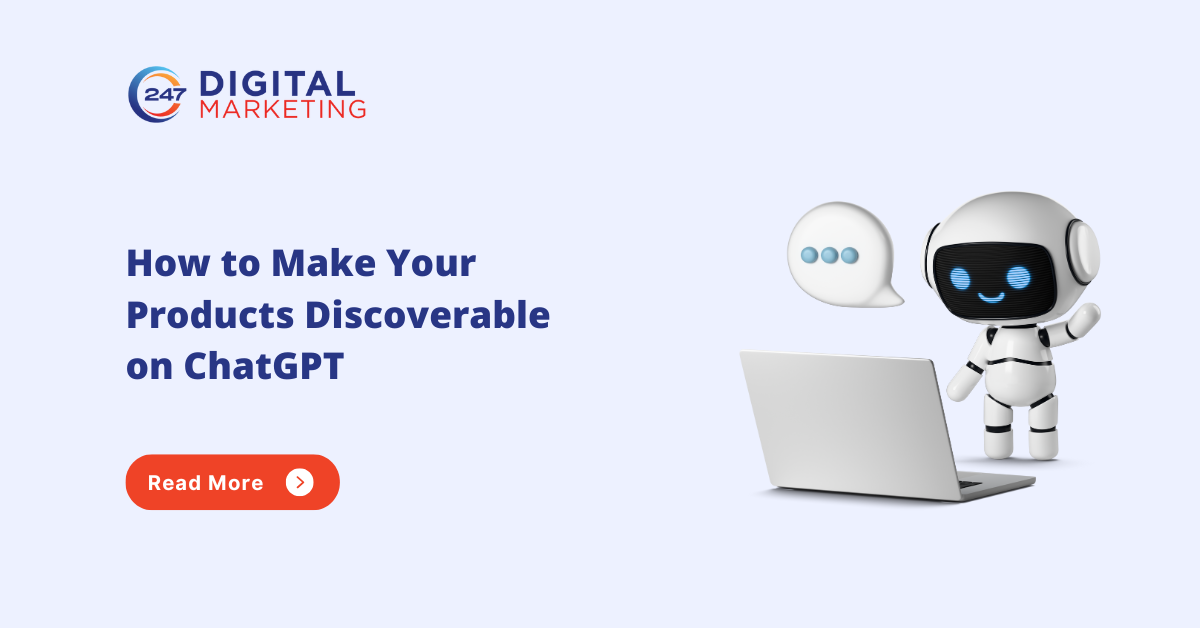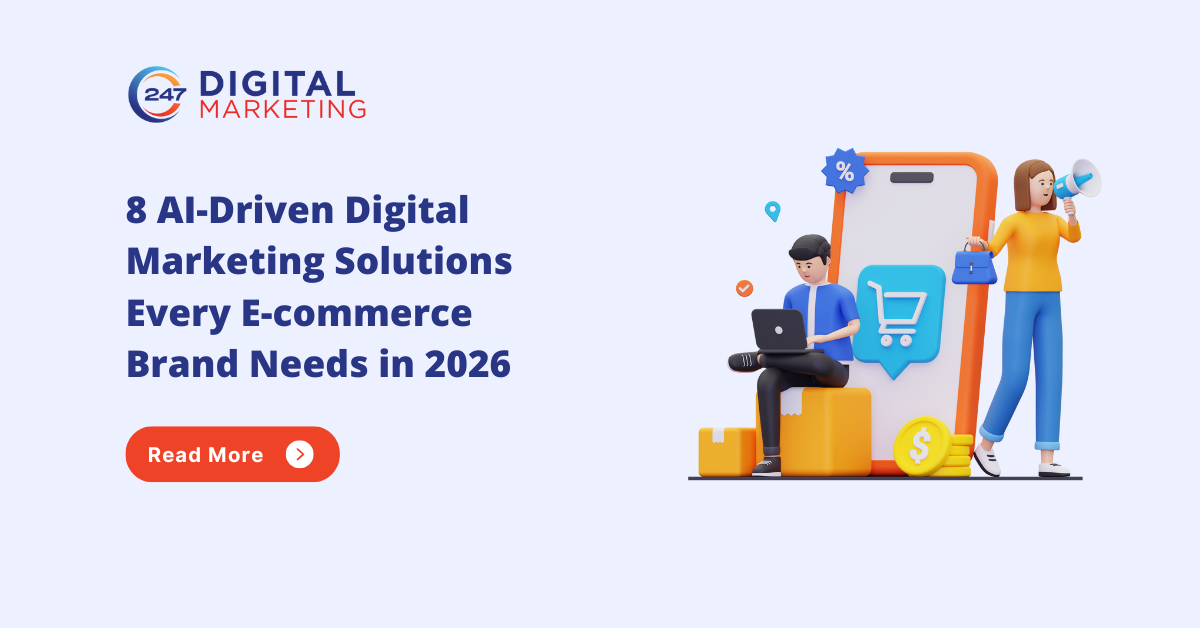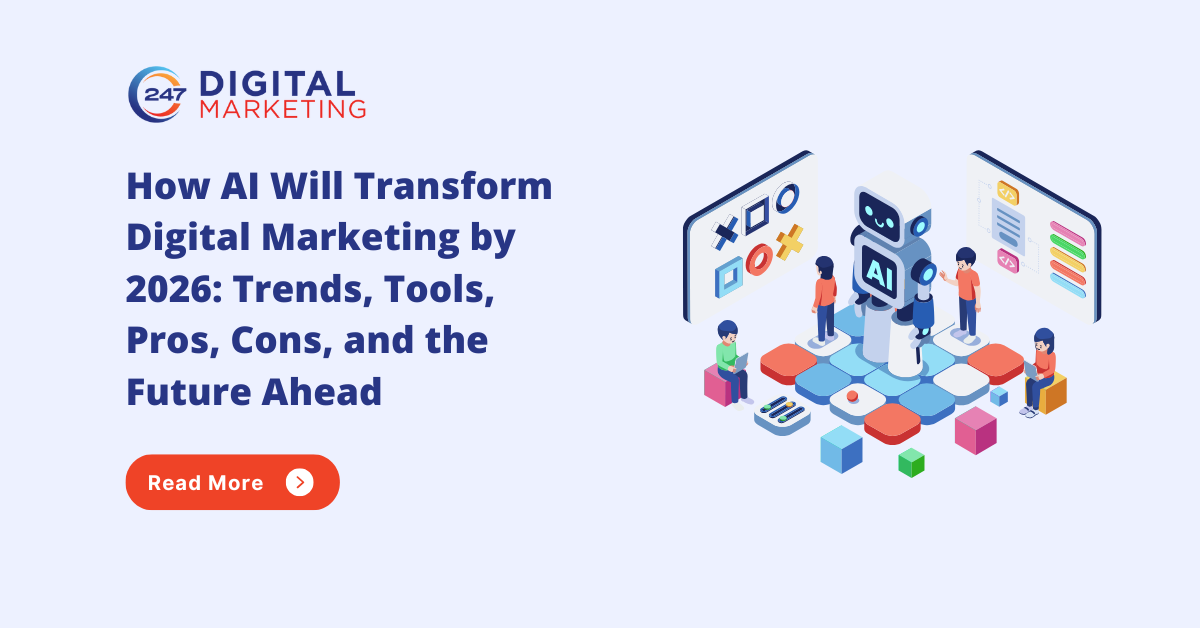The Evolution of AI in Marketing: From Automation to Personalization

AI Is Transforming Digital Marketing as We Know It
Artificial Intelligence is no longer a concept of the future—it’s a core driver of modern digital marketing. From delivering hyper-personalized customer experiences to enabling predictive analytics, AI is fundamentally changing how brands engage audiences and optimize campaigns.
According to our 2024 Global Digital Skills & Training Report, marketing leaders point to AI’s role in boosting productivity (50%), improving efficiency (45%), and sparking innovation (38%). The message is clear: AI isn’t a passing trend—it’s a strategic imperative.
In this guide, we’ll break down how AI is reshaping the digital marketing. You’ll discover essential tools, real-world use cases, the advantages and challenges of AI integration, and the skills you need to stay ahead in an AI-powered marketing landscape.
What Is AI in Digital Marketing?
AI in digital marketing refers to using machine learning, data analytics, and natural language processing to automate and enhance marketing decisions. It empowers marketers to:
- Collect and analyze massive datasets in real time
- Personalize content based on user behavior
- Improve customer journeys with predictive insights
- Automate repetitive tasks such as email workflows or reporting
AI doesn’t replace human creativity, it enhances it. Marketers still provide strategy, empathy, and innovation while AI powers efficiency and scale.
AI is a tool, not a replacement. Its value is in how effectively marketers put it to work.
Top AI Tools Marketers Are Using Today
While ChatGPT often dominates headlines, there are many powerful AI tools transforming daily marketing tasks. Here are some of the top platforms:
Writer – AI content generation & repurposing
Midjourney – AI image creation from prompts
Optimove – Customer data & predictive marketing
Zapier – Workflow automation across apps
Manychat – NLP-powered chatbot automation
Natural Language Processing (NLP) in digital marketing involves using AI to analyze and understand human language, enabling marketers to personalize content, improve customer engagement, and optimize campaigns.
Evolv.ai – Real-time experience optimization
Surfer SEO – On-page SEO and keyword intelligence
Mailchimp – AI-enhanced email personalization
Perplexity – AI research assistant with web citations
Drift – Conversational marketing and AI chatbots
Buffer – AI-powered social scheduling and analytics
Tableau – Data visualization and business intelligence
AI in Action: Real-World Marketing Examples
AI is making a tangible impact across industries:
- Sephora uses AI chatbots and virtual try-on tools to enhance customer shopping experiences, boosting e-commerce revenue from $580M (2016) to $3.6B (2024).
- Netflix personalizes content recommendations using viewer behavior, preferences, and real-time feedback—minimizing churn and maximizing engagement
How to Use AI in Your Marketing Strategy?
AI is no longer just for big enterprises—it’s now within reach for small teams too. Discover where it’s making the biggest difference and how to put it to work for you :
1. Content Creation
Use generative AI (e.g., ChatGPT, DeepSeek) to write blog posts, ad copy, headlines, and even influencer scripts. These tools help scale content production, but always review for tone, accuracy, and alignment with your brand voice.
2. Customer Service
AI chatbots provide instant, 24/7 support. They route queries, streamline purchases, and personalize interactions.
3. Customer Segmentation
AI algorithms group users based on behavior and preferences, helping you deliver hyper-targeted campaigns in real time.
4. Search Engine Optimization (SEO)
AI tools now assist with keyword research, content optimization, and even voice/visual search enhancements. Google’s AI Overviews (formerly SGE – Search Generative Experience, a feature in Google Search which provides AI-generated summaries to search prompts.) are redefining how content ranks.
5. Pay-Per-Click Advertising (PPC)
AI enhances PPC strategies through automated bidding, targeting, and performance prediction—ensuring you spend smarter and convert more efficiently.
6. Data Analytics
AI processes large datasets rapidly, uncovering actionable insights, trends, and predictive patterns marketers can use to fine-tune strategy.
7. Email Marketing
AI personalizes subject lines, copy, send times, and segments, while automating A/B testing and performance analysis.88% of marketers say they need to increase their use of automation and AI to meet customer expectations.
AI in Marketing: Benefits & Challenges
Key Benefits
Boosts productivity by automating repetitive tasks
Enhances personalization at scale
Improves ROI via better targeting and customer insights
Predicts trends with data-driven foresight
Drives innovation by freeing time for strategic focus
Potential Challenges
Bias in data can skew outcomes
Accuracy depends on data quality
Ethical concerns around consent and targeting
Data privacy risks
Transparency around AI-generated content
AI is no longer niche. Marketers must master it or risk falling behind.
Must-Have Skills for AI-Driven Marketing
To thrive in the AI era, marketers must blend technical proficiency with strategic thinking. key skills include:
Technical Skills
Data management & analysis
Marketing automation
A/B testing and personalization
AI tool integration
Soft Skills
Strategic & agile thinking
Innovation & creative problem solving
Understanding AI’s role in customer experience
Ethical awareness
FAQs
1. What is AI in digital marketing?
AI in digital marketing refers to the use of technologies like machine learning, natural language processing, and data analytics to automate and optimize marketing efforts. It helps personalize content, predict customer behavior, and improve campaign performance.
2. How does AI improve marketing efficiency?
AI automates repetitive tasks (like email scheduling, reporting, and customer segmentation), allowing marketers to focus on high-impact activities. It also analyzes data faster and more accurately, improving targeting and decision-making.
3. Can small businesses use AI in marketing?
Absolutely. Many AI tools are scalable and affordable, making them accessible to businesses of all sizes. Tools like Mailchimp, Manychat, and Surfer SEO offer entry points for smaller teams to enhance marketing strategies using AI.
4. Will AI replace human marketers?
No. AI is a tool that enhances human capabilities—it doesn’t replace creativity, empathy, or strategic thinking. Successful marketers will combine AI tools with human insight to deliver better outcomes.
5. How do I get started with AI in my marketing strategy?
Start by identifying repetitive or data-heavy tasks you can automate. Choose tools that align with your goals (e.g., content generation, customer segmentation, or SEO). Gradually build technical proficiency and stay current on AI trends.
Conclusion : Embrace AI to Elevate Your Marketing
AI isn’t here to replace you—it’s here to empower you.
By automating repetitive tasks and enhancing data insights, AI frees you to focus on what truly drives results: creativity, strategy, and innovation. Mastering AI today is more than an advantage—it’s a necessity for staying ahead in a rapidly evolving digital landscape.
At Digital Marketing Agency in USA, we help businesses unlock the full potential of AI by integrating smart technologies into every layer of your digital strategy—from content creation and automation to SEO and analytics.
The future of marketing is AI-driven. Are you ready to lead it?
Partner with 247 Digital Marketing and transform the way you market.
Mitesh Patel is the co-founder of 247 Digital Marketing, LawFirm Marketing and a columnist. He helps companies like Emerson and other top Fortune 500 compnies to grow their revenue.



